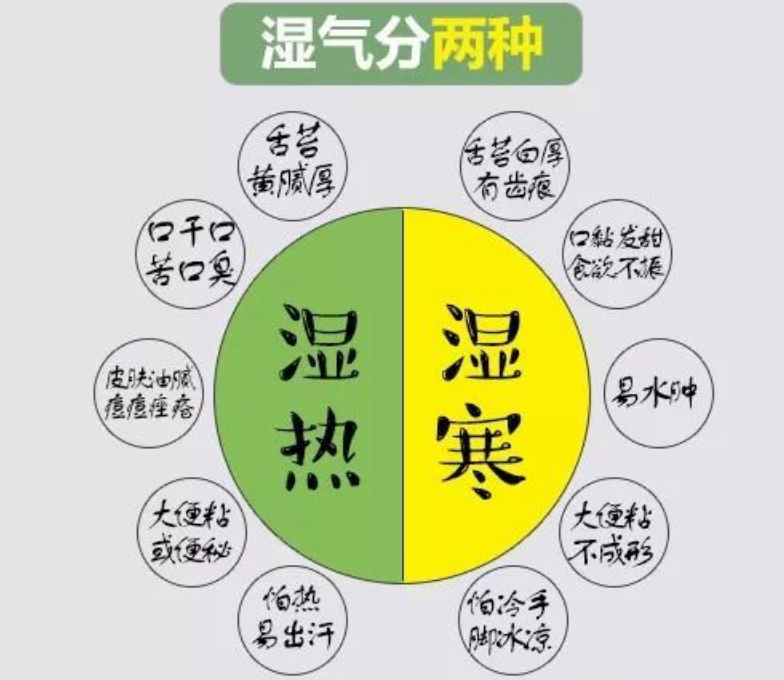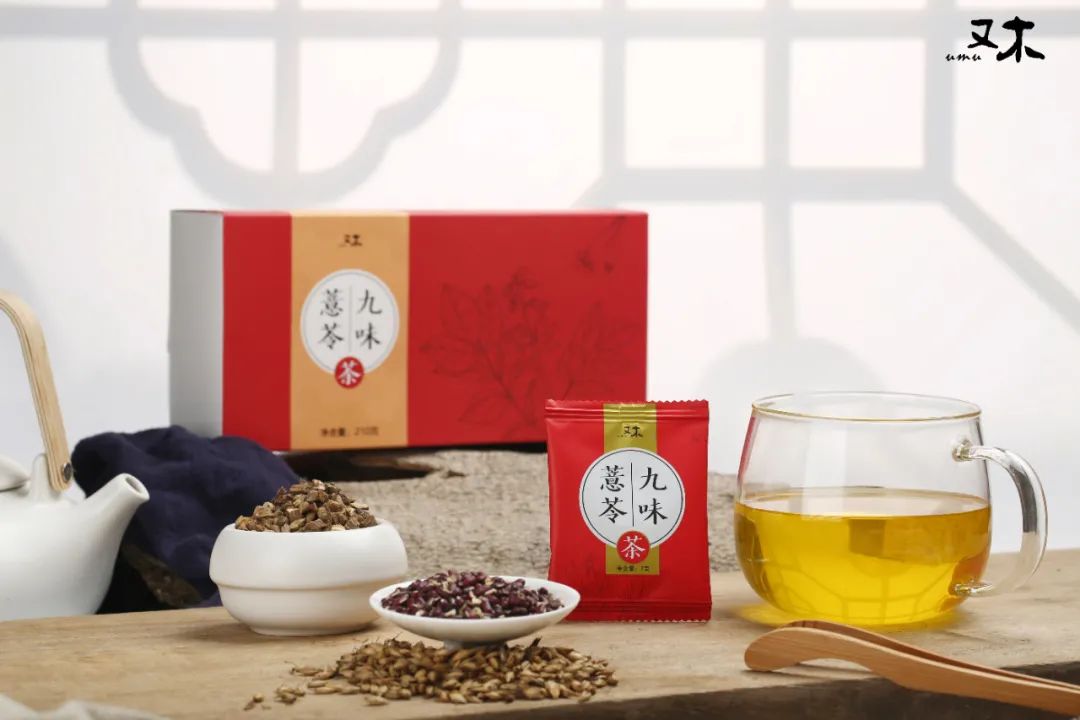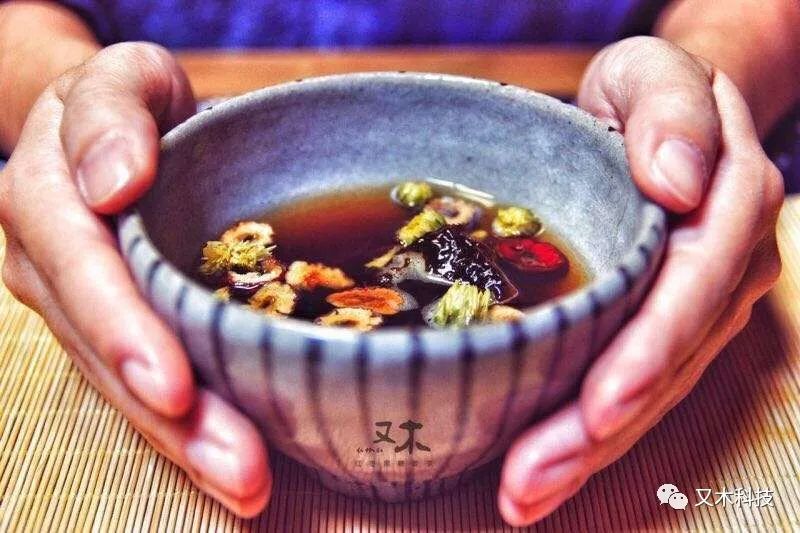Traditional Chinese Medicine (TCM) divides the year into five seasons: spring, summer, late summer, autumn, and winter. Late summer refers to the period between the end of summer and the beginning of autumn. TCM believes that late summer is associated with the element of dampness and the organ of the spleen. Health maintenance during this period focuses on eliminating dampness and strengthening the spleen. If there is excessive dampness in the body, it can lead to various diseases.

For example:
Why does my eczema flare up every summer?
Why does my cough worsen in the summer?
Why do I feel discomfort in my gastrointestinal tract during summer?
Ultimately, these issues are related to dampness.
Many people panic at the mention of dampness, but often after much effort, the results are minimal. In fact, dampness has many forms, such as cold-damp, damp-heat, and phlegm-damp.
Today, we will discuss damp-heat and cold-damp.
How Damp-Heat and Cold-Damp Arise
Damp-heat is primarily attributed to external climatic factors.
In summer, intense sunlight combined with heavy rain creates a climate conducive to the evaporation of dampness, resulting in damp-heat.
We say that humans exist in the interaction of heaven and earth, sharing the same qi (vital energy) with nature, which is why we often feel sticky, humid, and hot.
Thus, symptoms associated with damp-heat, such as skin diseases, become apparent in summer.
Cold-damp is mainly related to diet.
Summer is a peak season for seeking coolness, and air conditioning and cold drinks are major sources of cold qi.
Staying in air-conditioned rooms for long periods without sweating prevents the expulsion of dampness; cold drinks and fruits directly enter the spleen and stomach, damaging spleen yang and generating internal cold-damp.
Therefore, symptoms associated with cold-damp, such as spleen and stomach disorders and dysmenorrhea, may manifest in summer.

How Damp-Heat and Cold-Damp Arise
Whether damp-heat or cold-damp, they are essentially forms of dampness, so there are some common symptoms:
① Heaviness and fatigue ② Thick and greasy tongue coating ③ Oily skin ④ Sticky stools ⑤ Excessive vaginal discharge
Of course, due to the different properties of cold and heat, there will still be some symptom differences.
Damp-Heat
Red tongue, yellow coating, dry mouth, bitter taste, heartburn,
yellow and sticky vaginal discharge, fear of heat and tendency to sweat
Cold-Damp
Pale and swollen tongue, teeth marks, white coating, pale mouth, no thirst, abdominal bloating, diarrhea
Clear and long urine, light-colored vaginal discharge, cold hands and feet
If you have more than three of the above symptoms, you should pay close attention.
Regulating Damp-Heat and Cold-Damp
For regulation methods, we will first discuss the commonalities that should be avoided for both damp-heat and cold-damp:
① Any foods that generate dampness or harm yang qi, such as ice cream, cold beer, and raw fruits.
② Any sticky or hard-to-digest foods, such as glutinous rice balls, sticky rice, chocolate, and fatty meats.
Because the body has dampness, it can also cling to the spleen and stomach, leading to poor digestion. These foods increase the burden on the spleen and stomach, exacerbating damp-heat or cold-damp.
Next, we will differentiate the approaches.
Damp-Heat Regulation
Minimize consumption of hot and spicy foods, such as leeks, raw garlic, spicy hot pot, lamb, durian, lychee, and mango.
For dietary therapy, it is recommended to drink damp-expelling teas: a daily cup of Yi Yi Ren Jiu Wei Tea is suggested.

TCM believes that the combination of nine herbs: Yi Yi Ren (Job’s Tears), Fu Ling (Poria), Chi Xiao Dou (Adzuki Bean), Zhi Zi (Gardenia), Ku Qiao (Bitter Buckwheat), Qian Shi (Euryale Seed), Ju Pi (Tangerine Peel), Da Mai (Barley), and Gan Cao (Licorice) can effectively strengthen the spleen and expel dampness, removing deep-seated dampness from the body. This is a classic food-medicine homology formula suitable for people at various stages of dampness.
Tian Fu Ling, also known as Ci Zhu Ling, Guo Shan Long, and Hong Tu Ling, is the tuber of the perennial evergreen vine Guan Ye Zhi from the lily family. It is neutral in nature, sweet and bland in taste, and enters the liver and stomach meridians. It has the effects of detoxifying heat and promoting urination, and can be used for skin damp-heat, lower jiao damp-heat, treating various skin diseases, diarrhea, and kidney diseases. Modern pharmacological analysis shows it contains alkaloids, trace fatty oils, phytosterols, saponins, and tannins, and it has been found to be effective for various cancers, particularly improving symptoms in esophageal, gastric, and rectal cancers.
Damp-Cold Regulation
Minimize consumption of cold and icy foods, such as watermelon, cantaloupe, kiwi, and dragon fruit.For dietary therapy, it is recommended to drink warming teas: a daily cup of Red Date Black Sugar Ginger Tea is suggested.

The ingredients for Red Date Black Sugar Ginger Tea are simple: a handful of dried ginger, a few dates, and a piece of pure black sugar brewed with water at 85°C. It can be consumed every morning between 7-9 AM when the spleen and stomach meridians begin to operate.
Because it is simple and effective, it is easy for everyone to stick to!
It is important to choosedried ginger because fresh ginger is suitable for the early stages of wind-cold colds. If you have an external wind-cold condition, boiling fresh ginger in water can help expel superficial cold-damp from the skin. However, for those with cold in the stomach and frequent nausea, especially those with severe spleen and stomach deficiency, dried ginger is essential to warm the internal organs.
Red Dates are often said to be beneficial for longevity, as they have the effect of warming the center and tonifying qi, making them excellent for nourishing the spleen and stomach.
Black Sugar has the effects of warming the meridians, dispelling cold, nourishing blood, and benefiting qi, which can help women have smooth menstrual cycles. Women can consume it during menstruation, especially if there are blood clots, to nourish blood and regulate menstruation. Additionally, black sugar can effectively regulate various pigment metabolism processes, balancing the secretion and distribution of skin pigments, reducing abnormal accumulation of local pigments, thus achieving skin whitening and purification.
Summer is the perfect time to take advantage of the hot days to treat winter diseases, achieving twice the result with half the effort.
——————————————————————
Copyright Notice:
1. This article is prohibited from being reproduced in any form without authorization. For reproduction and content collaboration, please leave a message in the public account backend.
2. The comment section at the end of the article is open for comments. If you need to know about the products, you can addPre-salesyoumusucai7

